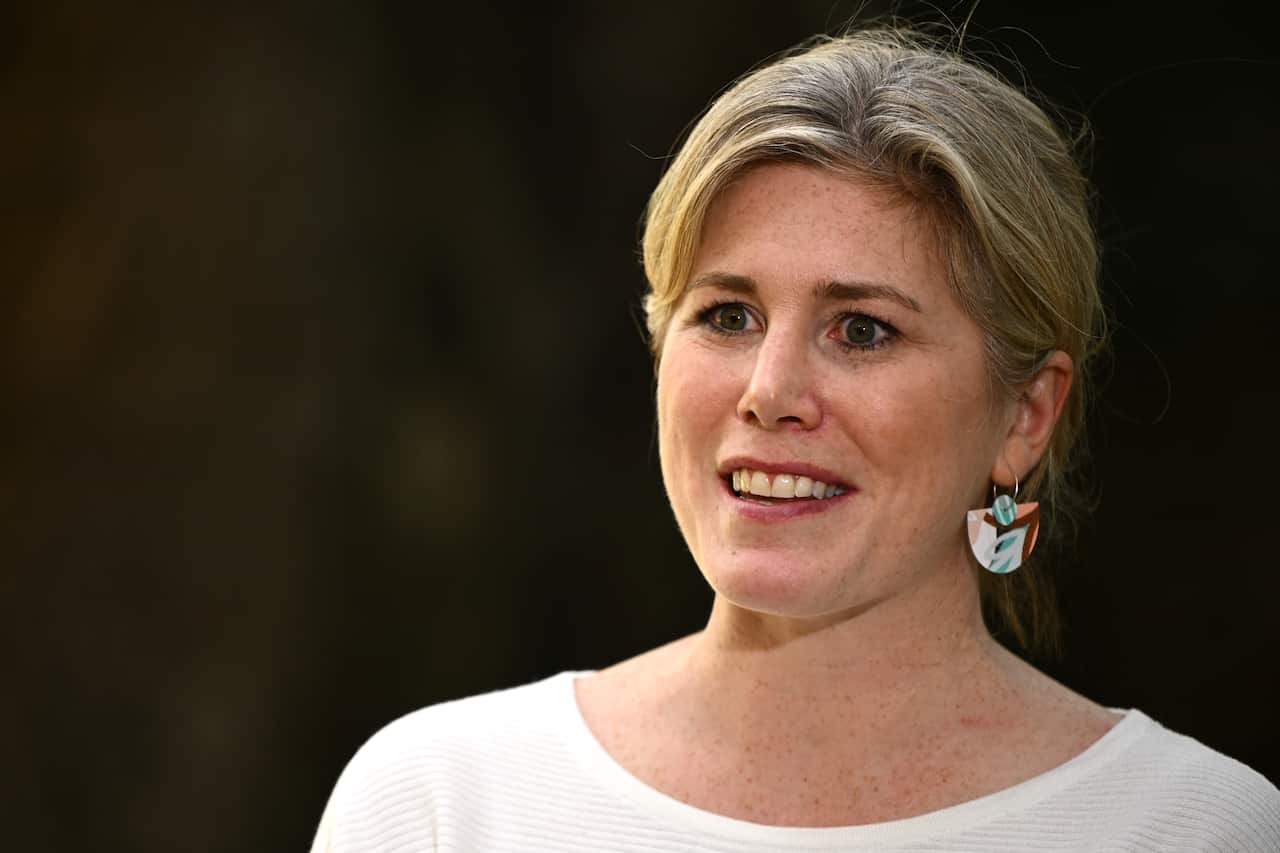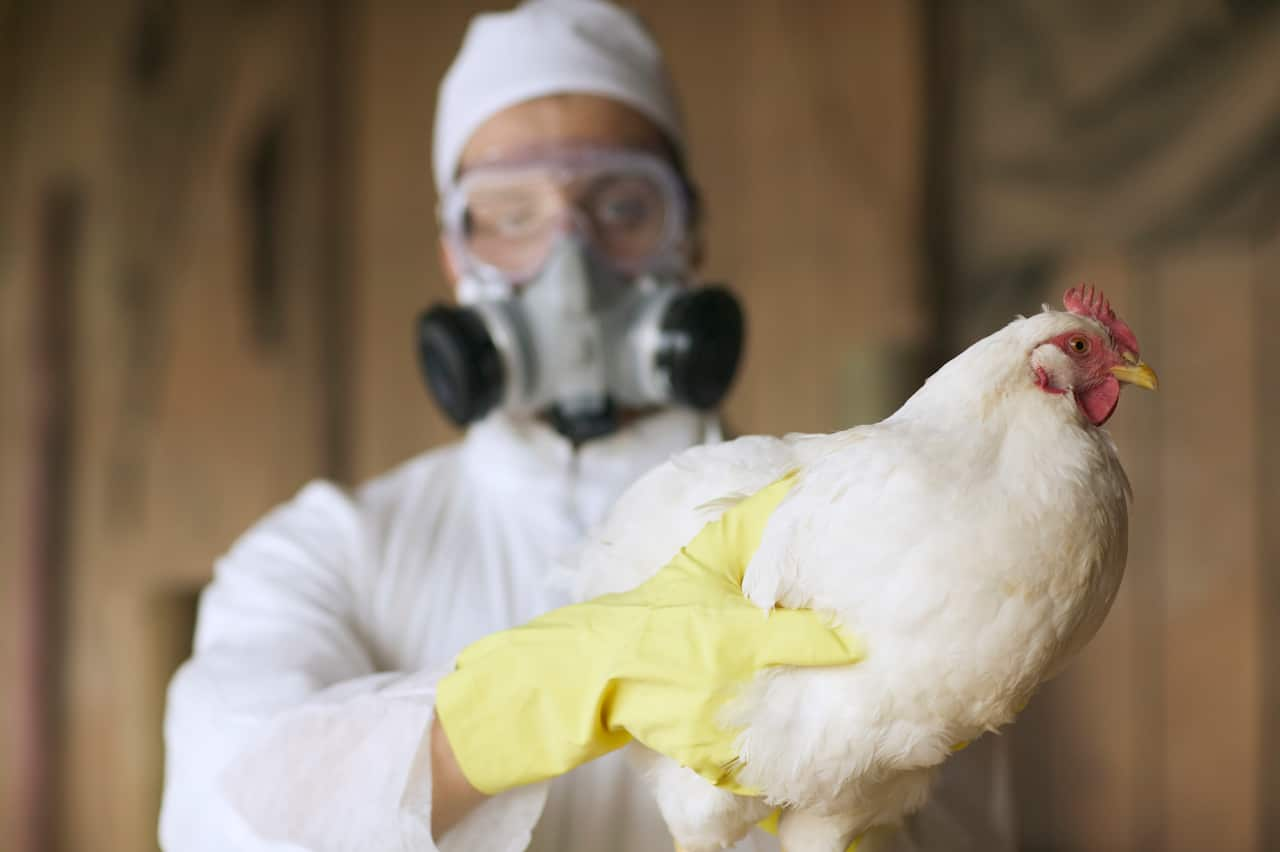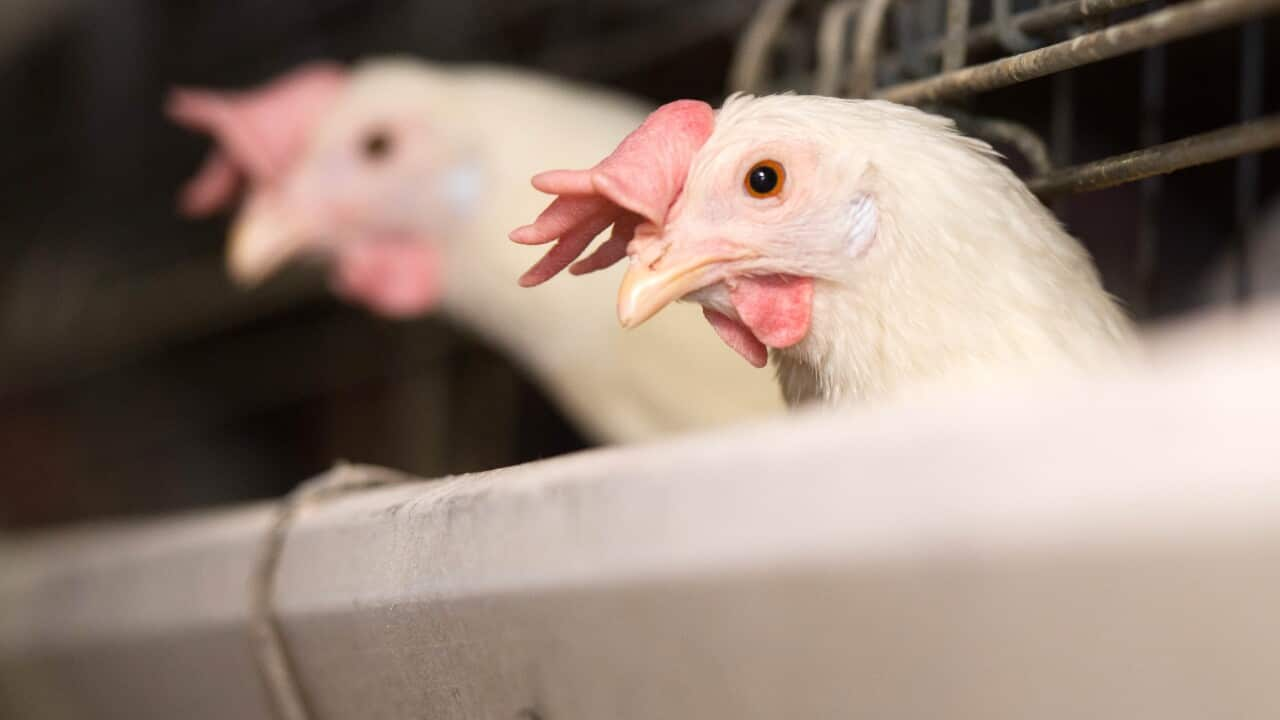A child returning from overseas has been confirmed as Australia’s first recorded human case of a strain of bird flu that has been spreading globally, causing widespread bird deaths.
The child, who returned to Victoria from India in March, experienced a “severe infection” after contracting the H5N1 strain but has since made a full recovery, Victoria’s chief health officer confirmed on Wednesday.
“This is the first human case of in Australia,” Dr Clare Looker said.
“The avian influenza virus was detected through further testing of positive influenza samples that takes place to detect novel or concerning flu virus strains, as part of Victoria’s enhanced surveillance system.
“Contact tracing has not identified any further cases of avian influenza connected to this case.”
Dr Clare Looker says avian influenza does not easily spread between humans. Source: AAP / Joel Carrett
Looker said the chance of additional human cases was low as avian influenza does not easily spread between people.
Bird flu detected at Victorian egg farm
The revelation comes on the same day that agricultural authorities revealed a different strain of bird flu had been .
Agriculture Victoria has ordered urgent testing after avian influenza was detected at a farm near Meredith, about 40km northwest of Geelong, following a number of poultry deaths.
Chief veterinary officer Graeme Cooke said the outbreak likely involved the H7N7 strain, different to the highly pathogenic H5N1 variant.
“There is a type of virus which is causing great concern in the USA and other parts of the world and has behaved unusually in that it has infected dairy cattle and some other marine mammals,” Cooke told the ABC’s Country Hour.
“This is not the strain that we’re dealing with. This is a strain that’s occurred in Australia before. It’s likely not new.”
H7N7 was the most common strain of bird flu in Australia, Cooke said.
One of the strains in the last bird flu outbreak in Australia in 2020, which affected one-in-three egg farms in Victoria, was a H7 strain and testing is underway to determine if it’s the same one.
The property has been placed into quarantine with a 5km radius set up and affected animals will be “depopulated”.
A new strain of H5N1, clade 2.3.4.4b, emerged in 2020 and has been causing record numbers of deaths among wild birds and domestic poultry in recent months. Source: Getty / Peter Garrard Beck
Samples of the virus have been sent to the Australian Centre for Disease Preparedness in Geelong for testing.
What is avian influenza?
Avian influenza is a highly contagious viral infection which can cause severe symptoms and sudden death in domestic poultry, wiping out entire populations.
Wild birds are the natural host for the disease and it can spread through close contact or contaminated environments.
All bird species are thought to be susceptible to the deadly H5N1, which has also been detected in more than 50 mammal species, including humans.
Infected people have observed mild symptoms or have been asymptomatic, but some experience severe illness.
Authorities have reassured the public that eggs and poultry products in supermarkets do not pose a risk and are safe to consume.
Bird owners have been reminded to keep enclosures clean, quarantine new birds before integrating them with existing flocks, ensure footwear is clean and to always wash hands before and after handling birds or eggs.



It is concerning to hear about the first human case of H5N1 bird flu in Australia. I’m relieved to know that the child has recovered fully. Dr. Clare Looker’s assurance about the low risk of further cases is reassuring, given that avian influenza doesn’t spread easily between humans.